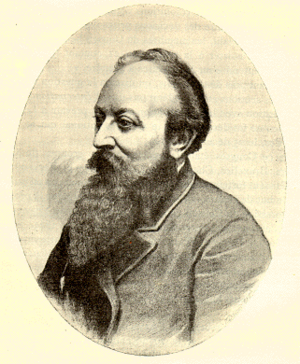César De Paepe facts for kids
César De Paepe (born July 12, 1841, in Ostend, Belgium – died 1890, in Cannes, France) was a Belgian doctor and a strong supporter of workers' rights. He believed that democracy, where people have a say, should also apply to workplaces. This idea, called "workplace democracy," meant that workers would have more control over their jobs and companies. His ideas greatly influenced movements like the Industrial Workers of the World. He studied medicine at the Free University of Brussels.
Contents
César De Paepe's Beliefs
César De Paepe was a leading member of the First International, an important group for workers' rights. He helped a group called the "Collectivists" win an argument against another group called "Proudhonian mutualists" at a meeting in Brussels in 1868.
Workers' Rights and Public Services
At first, De Paepe sided with those who disagreed with Karl Marx in a big split in 1872. However, he later debated with anarchists, who believed in no government. These debates were about "Public Service Question." He came to believe that a "workers' state" was needed to provide important services like public health for everyone.
Starting a New Magazine
In late 1877, De Paepe, along with Joseph Favre, Benoît Malon, and Ippolito Perderzolli, started a magazine called Le Socialisme progressif in Switzerland. They published 23 issues between January and November 1878.
Favre, Malon, Lodovico Nabruzzi, and Tito Zanardelli had already formed a group called the "internationalist section of Lake Lugano." This group believed in making changes slowly, rather than through sudden uprisings. They also strongly supported trade unions, which are groups that protect workers' rights.
De Paepe's View on Revolution
César De Paepe lived after The Communist Manifesto was written but before World War I. Because of this, his ideas are often compared to those of Karl Marx. De Paepe was not sure if a violent revolution by workers was the best way to make changes.
He thought a revolution might be possible, and even good in some countries. However, he also believed that if democratic values slowly grew in workplaces, it would make things more peaceful. He thought that if everyone became a "manager" in their own way, the idea of "management" would become less special. This is like how political leaders became less mysterious once everyone could vote.
See also
In Spanish: César de Paepe para niños
 | Selma Burke |
 | Pauline Powell Burns |
 | Frederick J. Brown |
 | Robert Blackburn |


